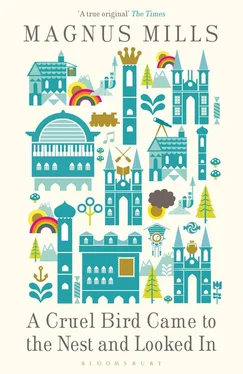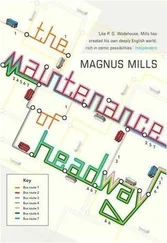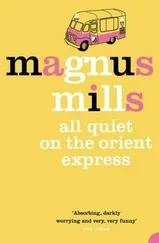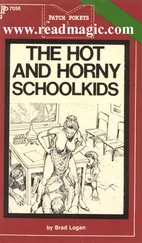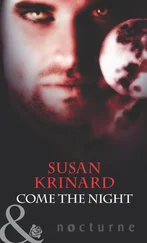‘Can you read and write?’
‘Of course.’
‘Well, I wish you’d said,’ he said. ‘We could have saved ourselves a lot of bother.’ He referred to the very last card in his index. ‘Here we are: a vacancy for a booking clerk.’
‘Is that with the railway?’ I enquired.
‘No,’ he said, ‘it’s with the municipal orchestra.’
I was given an address and a letter of introduction; also a map of the elevated tramline. This, apparently, circumnavigated the city at rooftop level. It could whisk passengers from one district to another in a matter of minutes. Unfortunately I had no money for the fare, so I had to walk. By way of consolation, I told myself that going on foot would help me get to know my new surroundings in more detail. Obviously I couldn’t take in the whole place all at once, but a casual stroll on my first day would be a start. My destination was the civic concert hall; according to the map it was situated in Twenty-seventh Avenue. This in itself was a novelty. It seemed that the entire metropolis was laid out in an orderly grid with all the roads designated by a number or a letter from the alphabet. What a difference to Fallowfields, which was a maze of winding, higgledy-piggledy streets, some paved, some cobbled; and where any notion of planning was unheard of! I’d never thought about it before, but most of the street names in the imperial capital were completely baffling and gave no clue to one’s whereabouts. Here in the City of Scoffers you knew that if you were standing in F-Street, then the neighbouring road would logically be called G-Street, and so on. In Fallowfields, by contrast, we had thoroughfares with names like Fire Engine Lane, Lost Sheep Crossing and Pudding Street Approach. I recalled that I once spent a fruitless afternoon searching in vain for Snakes and Ladders Yard. Subsequent investigation revealed that the so-called yard had long since been built over; it further transpired that Fire Engine Lane didn’t have a fire station (neither, incidentally, did Pump Street or Helmet Row); Lost Sheep Crossing turned out to be a narrow passage where sheep couldn’t possibly become lost; and Pudding Street Approach was nowhere near Pudding Street.
Now, as I stood looking along Alley No. 39, which was perfectly straight and ran parallel with Alley No. 38, I realised I was quite fond of chaotic, disorganised Fallowfields.
Nevertheless, I had to admit that the City of Scoffers was also impressive in its own way. Twenty-seventh Avenue was home to a number of enormous buildings. These included the Institute for Mathematical Excellence, the Hydrostatics Society and the headquarters of the CoS Railway Network.
The latter edifice caught my attention because of the huge banner hanging above the main entrance. It bore a forthright message in large black letters:
BUY RAILWAY BONDS
RESIST THE THREAT FROM THE WEST.
I couldn’t imagine what sort of threat Fallowfields was supposed to be making to this formidable city. As far as I knew we were in no position to threaten anybody just now, what with our worthless currency reserves, our unpaid debt, our lack of ships and the prolonged absence of our emperor. Besides which, I’d have thought there was more to a successful society than simply expanding the railways. Surely they’d gone far enough already. What were they going to do when they reached the coast? Dig tunnels under the seabed? The idea was preposterous! I was coming to the conclusion that these ‘scoffers’ wasted a lot of energy on unnecessary projects, when they should be enjoying the finer things in life, as practised by people like Wryneck and Smew. Where, I wondered, were the museums, the libraries and the art galleries?
My question was answered when I reached the very next corner. Stretching for about half a mile between Twenty-seventh Avenue and J-Street was the City of Scoffers Museum of Fine Arts (incorporating the civic library).
‘Well,’ I reflected, ‘I suppose at least that’s something.’
After another ten minutes’ walk I came to the concert hall. According to a sign at the top of the steps, this was the residence of the New Municipal Orchestra. It was also to be my workplace for the foreseeable future, so I headed up the steps and went inside. I had been informed at the employment exchange that I’d be answerable to the Professor of Music. There was an attendant on duty in the foyer. I introduced myself and he told me the professor was busy in his study. I would doubtless meet him in due course. Meanwhile he showed me into the box office and suggested I made myself familiar with the various types of ticket. The box office was small but comfortable. It had two windows: one overlooked the stone stairway outside; the other faced in towards the foyer. Directly opposite were the doors to the auditorium. Behind them I could hear the faint sound of an orchestra tuning their instruments; and for a poignant moment I was reminded of my former days of glory in Fallowfields. I also knew from experience that they were about to commence a rehearsal.
The ticketing arrangements looked simple enough to me, so after going through them a few times I emerged from the box office to stretch my legs. By now I’d managed to locate the Professor of Music’s study. It was over in the far corner of the foyer, and I resolved to keep one eye on the door.
Positioned close to the box office was a noticeboard, its purpose presumably being to advertise upcoming events at the concert hall. For some reason it was completely bare at present, and I was just pondering this fact when the professor’s door opened. Through it came Greylag.
His appearance had changed since our last encounter. Instead of his olive drab uniform he was now wearing a formal tail coat. As he came wandering into the foyer I experienced an odd sinking feeling. After all, Greylag was the individual on whom I now depended for my reference and travel permit. Quickly my mind ran back over the previous few months as I tried to remember exactly how I’d treated him. Had I been kind to him, unkind, or indifferent? If I had been unkind, would Greylag now be vengeful? I really couldn’t tell. He had no knowledge of my failed attempts to purchase sweets for him and the other musicians. All he knew was that I’d allowed him to be transported to the City of Scoffers; and now the tables were well and truly turned.
I was relieved, therefore, when suddenly he recognised me and spoke in a friendly manner.
‘Oh hello, sir,’ he said. ‘It’s very nice to see you.’
‘It’s very nice to see you too,’ I replied (I nearly added ‘Professor Greylag’, but I thought better of it).
In the same instant I realised that his mind was on far more important matters than vengeance. He had an orchestra to rehearse, and as always that was his priority. Furthermore, it occurred to me that Greylag’s situation had changed much more drastically than mine. Only yesterday he’d been a serf in the Empire of Greater Fallowfields. Now he was Professor of Music in a rich and powerful city. No wonder, then, that he looked a little distracted.
‘Are you all right?’ I asked.
‘Yes, thank you, sir,’ he answered, ‘but I’m afraid this professorship is taking some getting used to. I don’t know anything about organising performances, selling tickets and so on. I’m just a musician, plain and simple.’
‘Well, don’t you worry about anything except the music,’ I assured him. ‘We’ll take care of everything else.’
It gave me a nice feeling to be able to say this to Greylag, and he seemed slightly more at ease after our brief conversation. All the same I sensed that something else was troubling him. With regret I realised that I was hardly in a position to delve further. I was a humble booking clerk and he was my superior, so for the time being I would have to mind my own business.
Читать дальше
